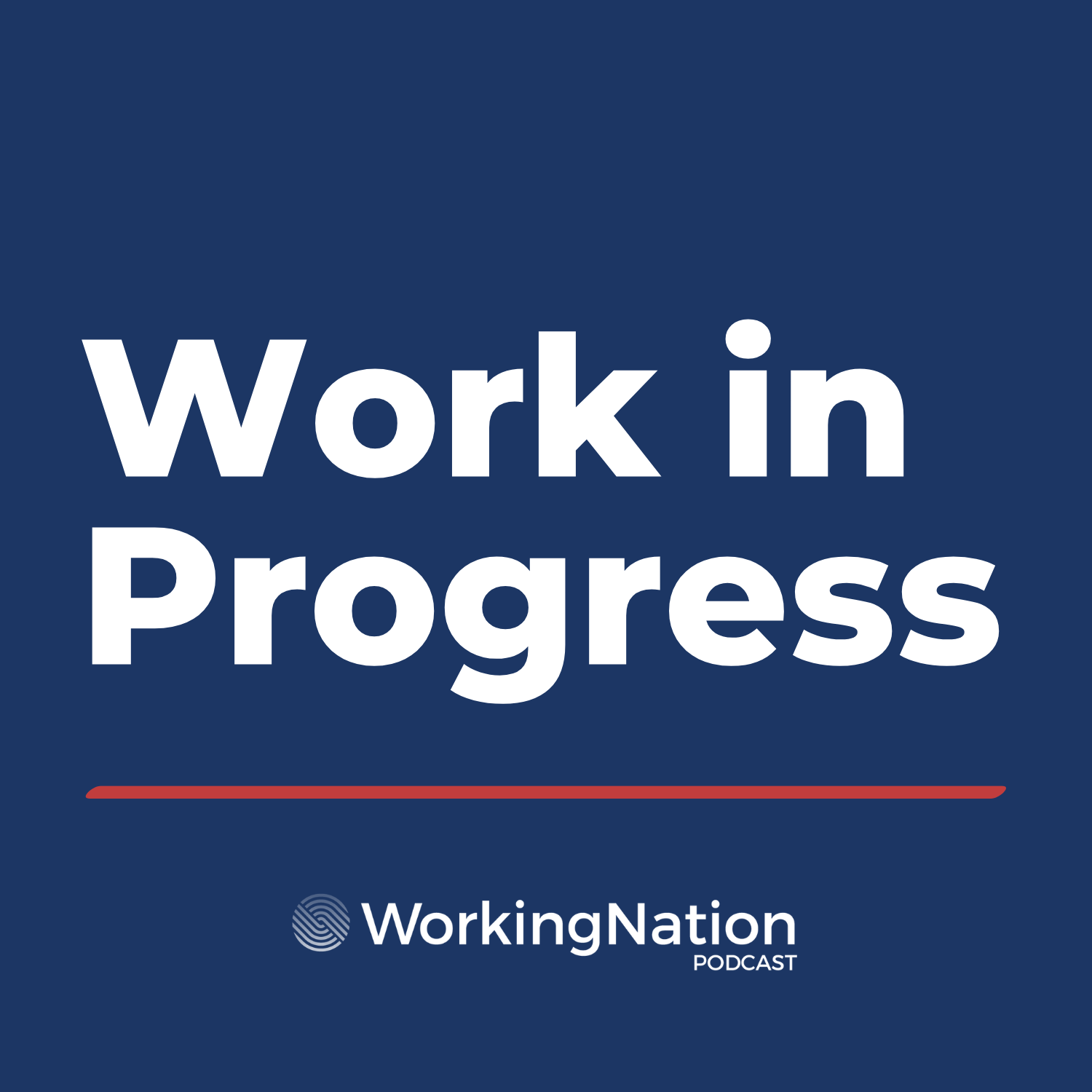Creating economic mobility and job opportunity for all citizens
Description
In this episode of Work in Progress, I am joined by Gov. Wes Moore of Maryland. We sat down together at the Aspen Ideas Festival last week to talk about what his administration is doing to create economic mobility and opportunity for all its citizens.
When it comes to putting people to work in Maryland, Gov. Wes Moore says he embraces the ethos he first learned when he joined the U.S. Army as a teenager: Leave No One Behind.
"It's a great lens on how we should view our work. It's not just because it's important psychologically, it's important for mission accomplishment. It's a core criteria for mission accomplishment," he tells me in the interview.
Moore says that "A growing economy is a participatory one. A stagnant and stalled economy is one where you have a huge swath of society that is not participating. Forget a moral sense, it doesn't make economic sense for us to do that.
"If you continue to have areas and communities where you essentially have these deserts of economic activity, that's not benefiting anybody. It's not benefiting that local jurisdiction. It is not benefiting the state that local jurisdiction exists in."
In our conversation around employment and jobs, Gov. Moore and I discuss the ways Maryland is building workforce development partnerships with nonprofits and employers to ensure that everyone in the state has a chance for economic mobility. He shares how the money from the bipartisan federal infrastructure bill is already creating thousands of jobs in Maryland alone, including good-paying union jobs in construction.
Gov. Moore also addresses the economic reason he pardoned 175,000 people with misdemeanor cannabis convictions.
And he tells me about the state's first-in-the nation public service year program for high school graduates that is designed to put teens and young adults on a pathway to a good-paying career. "Our high school graduates now have a chance to have a year of service to the State of Maryland. They can work in the environment. They can work in education. They can serve veterans. They can serve returning citizens. It's completely their choice.
"But it's a year to have a paid opportunity making $15 and getting a $6,000 stipend at the end of it and to be able to go out and define that thing that makes your heartbeat a little bit faster and go after it.
"We did it because we believe in experiential learning. We did it because we believe in paid financial cushions. We did it because we believe in this time of political divisiveness and vitriol that service will save us.
"But also this has become a remarkable workforce development tool, where some of the first people that signed up have actually been the private sector who said, 'We'll take three of them.' When you think about that, the ability to democratize these opportunities by making sure that they are paid opportunities, really is crucial for any type of thing we're trying to get done," adds Gov. Moore.
You can learn more about the work being done in Maryland to create and fill jobs in the podcast. Listen here, or get it wherever you get your podcasts.
You can also find it on my Work in Progress YouTube channel.
This podcast was recorded at the Aspen Ideas Festival, in collaboration with the Aspen Institute.
Episode 323: Gov. Wes Moore, MarylandHost & Executive Producer: Ramona Schindelheim, Editor-in-Chief, WorkingNationProducer: Larry BuhlTheme Music: Composed by Lee Rosevere and licensed under CC by 4Transcript: Download the transcript for this episode hereWork in Progress Podcast: Catch up on previous episodes here
More Episodes
In the final episode of the Work in Progress podcast series The Manufacturing Comeback, we look at how employers are recruiting and training veterans and women to fill jobs in the manufacturing industry.
Employers Anticipate a Surge in Hiring in Manufacturing
On my recent trip to...
Published 11/26/24
Published 11/19/24
This is Episode Two of The Manufacturing Comeback, a three-part Work in Progress podcast series. The series takes you inside the surge in hiring in the manufacturing industry. In this episode, we look at how small manufacturers are recruiting and training workers.
Small Companies are...
Published 11/19/24


